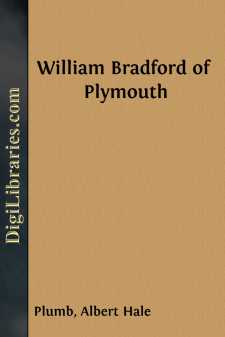Categories
- Antiques & Collectibles 13
- Architecture 36
- Art 48
- Bibles 22
- Biography & Autobiography 813
- Body, Mind & Spirit 142
- Business & Economics 28
- Children's Books 17
- Children's Fiction 14
- Computers 4
- Cooking 94
- Crafts & Hobbies 4
- Drama 346
- Education 46
- Family & Relationships 57
- Fiction 11829
- Games 19
- Gardening 17
- Health & Fitness 34
- History 1377
- House & Home 1
- Humor 147
- Juvenile Fiction 1873
- Juvenile Nonfiction 202
- Language Arts & Disciplines 88
- Law 16
- Literary Collections 686
- Literary Criticism 179
- Mathematics 13
- Medical 41
- Music 40
- Nature 179
- Non-Classifiable 1768
- Performing Arts 7
- Periodicals 1453
- Philosophy 64
- Photography 2
- Poetry 896
- Political Science 203
- Psychology 42
- Reference 154
- Religion 513
- Science 126
- Self-Help 84
- Social Science 81
- Sports & Recreation 34
- Study Aids 3
- Technology & Engineering 59
- Transportation 23
- Travel 463
- True Crime 29
William Bradford of Plymouth
Description:
Excerpt
THE world has nothing more worthy of our regard than its unconscious heroes. Though many can discern their own true importance, a peculiar charm invests such as do not realize it, even if they are told. They seem to think others would have done better in their place, and they lightly estimate their services, at less than their fellow-men accredit them. His ideal of duty captivates the doer more than his own agency therein. The noblest men are made by the contemplation of their models. Like the great Apostle, they are not disobedient unto the heavenly vision. Among earth's worthies, modest and unconscious of greatness, there stands the figure of William Bradford.
We find him first as a native of Austerfield, England, on the south border of Yorkshire. There is no official record of his birth. But in addition to his own declaration of age when first married, the clearly legible record of his baptism, March 19, 1589, would indicate that by the modern calendar he was born in 1590. The garments worn by him at the chapel March 19–29, being a short white linen covering and mitts which came for exhibition to Essex Institute in Salem, Massachusetts, are the apparel of a small babe.
The affirmation of Bradford, as a man thoroughly established in his integrity and his accuracy of statement, this declaration in the important matter of his marriage contract when he was required to subscribe his own signature, must be accepted as more weighty than the opinions given by others regarding his age in later years of his life, and the posthumous inscription placed long afterward on his monument. It is unlikely that he was consulted about his age, for any future epitaph, since even the necessary making of his will was deferred to the day of his death. Not long before his nuptials on December 10–20, 1613, he averred that he was twenty-three; and, supposing an error of his quite improbable here, our conclusion appears justified that he was born in 1590 by the Gregorian calendar. We also have no reason to doubt an old claim that his natal month was the same as his baptismal, March. Besides, the rule existed then, that the rite should be administered one week after birth. If this contemporary custom was followed, William saw the light of day March 12, 1589, by Old Style, or March 22, 1590, New Style.
It is unfortunate that the baptismal font, despite efforts to purchase it back, has not yet, to our knowledge, been yielded by the Methodist church in Lound, Nottinghamshire, and restored to its proper place at Saint Helen's in Austerfield. The Austerfield font at present we do not accept as the genuine original. That original one at Saint Helen's about the time of our Civil War seems to have been a victim to the generally weaker antiquarian interest then, and it was replaced by a high basin. It came back soon but evidently was unused, lying upon the floor aside. Then a sexton was ordered to take out and sell superfluous articles. After resting on an estate as a garden stone, it was given to a lady from Austerfield, who loaned it indefinitely to the church mentioned. It is a large Norman bowl, rough-hewn and of ancient aspect, which when in use was for convenience set upon a wooden block.
When the tolling bells above the small stone chapel summoned the Bradford family and friends to the solemn service, little did they discern, with all their natural affection, any unusual significance in that consecration of a life to be expended far from the quiet hamlet of old England in a growing community of New England.
As the child came to an age of sufficient understanding, how strongly must this humble shrine have appealed to him, with the development of his proclivities guided by one circumstance after another!...


